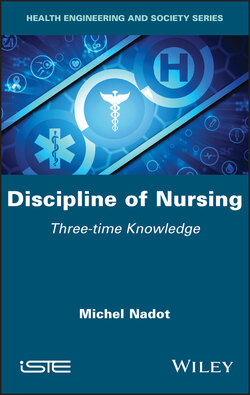Читать книгу Discipline of Nursing - Michel Nadot - Страница 14
2.1. The origin of the hospital
ОглавлениеRather, the public hospital was an institution of reception and assistance to life that provided a practical economic and material benefit to those who worked there. At the same time, by offering hospitality to the poor, the hospital could in return expect from them work in the service of the prosperity of the hospital’s land holdings. The era of feudalism based on land ownership and serfdom was not far off the mark: the bourgeoisie made its appearance. Thus, at the hôpital de Fribourg (Freiburg hospital), founded between 1248 and 1252, the hospital keeper “was assisted in his task by his wife (Magistra), who took care of the housekeeping and directed the female staff of the establishment. The hospital, governed by a layman, was also served by servants and not by religious men or women. This secular and bourgeois character allows us to classify the hospital as a communal or municipal hospital” [NIQ 21]. In comparison, the hôpital de Genève (Geneva hospital) welcomed 135 patients in 1600 [LES 85]. It was establishments of this kind, small (4–12 beds) or large (100–150 beds) that were favored to evoke the emergence of lay nursing knowledge. However, even though only one category of institutions was chosen, it is clear that these institutions could sometimes differ in their management, organization and staffing. “The differences between institutions, even within the same city, are as great as their commonalities. Within the major trends that are shaping the overall hospital landscape in French-speaking Switzerland, for example, each establishment also adopts its own rhythm, depending on local determinations” [DON 03]. We can extend this observation to all the countries concerned by the founding of hospitals. Hospitals therefore present different characteristics in terms of the quality of their services.
The adventure of the so-called “nursing” care began in a fairly limited field of hospital action. At the beginning, the story was mundane and there was nothing medicalized2. We owned land or bought a piece of land, if possible close to a river and along communication routes, we began by building, buying or receiving an ordinary house devoted to hospitality in order to welcome passers-by, the poor3 who were often isolated or without social ties, orphans, the elderly or any wandering person in need of help to live their daily life and we regulated the collective life. A hospital was born! There were “maisons” (houses) or “ménages” (households) according to ancient texts.
The terms “maison” or “ménage” often appeared in the documents (status, job descriptions, accounts, reports) that were created once the house was in operation. There was a need to hire (household) staff to operate it and to offer hospitality. The term “ménage” had a special status. The word was often used “as a separate entity with a defined position within the communal structures that were being established and becoming more complex” [ROD 05].
